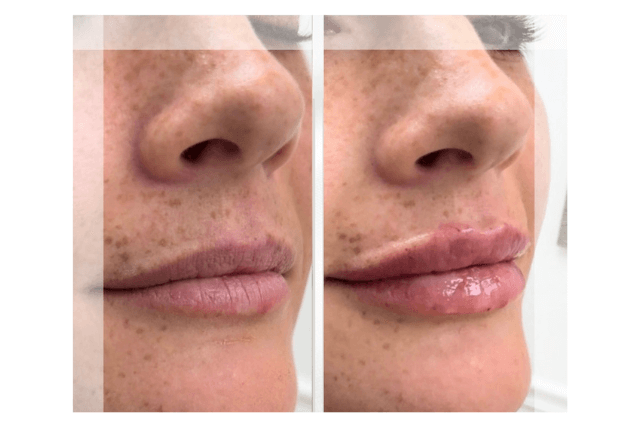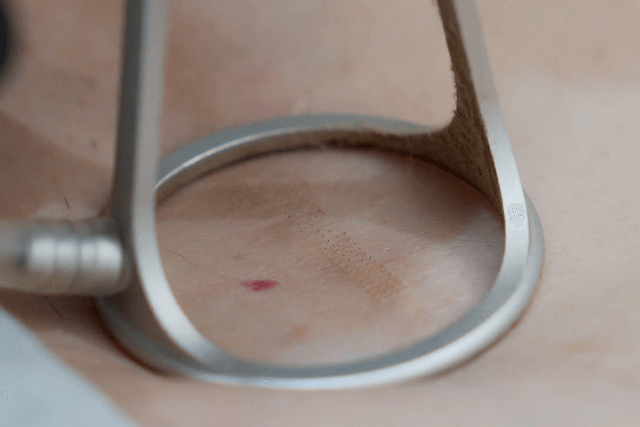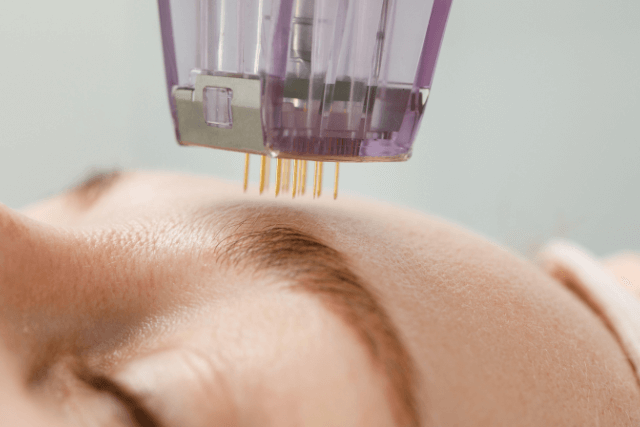Is there a BMI requirement to have a tummy tuck?
Many patients ask us, “Is there a BMI requirement for surgery?”. The answer is yes, most Plastic Surgeons do have a BMI requirement for surgery, although it can vary from office to office. At Eberbach Plastic Surgery, our BMI requirement for a tummy tuck is 27 or below. In massive weight loss patients and certain anatomies, sometimes there is an exception to this rule. For other surgeries, such as a breast reduction or arm lift, a patient must be at their goal weight with a BMI less than 35.
What is BMI?
Many patients are unfamiliar with what BMI is. Body Mass Index, also known as BMI, is a formula that measures a person’s body size by dividing their weight by the square of their height in feet. This is a very common screening tool that can help indicate whether a patient is underweight, a healthy weight, or heavier weight. If a person’s BMI is outside of the healthy range, their health risks can increase significantly.
Is there a requirement for a Healthy BMI for Plastic Surgery?
There are several different reasons why Eberbach Plastic Surgery requires a BMI of 27 or below. The biggest reason is safety. This is our top concern for performing any procedure. If a person’s BMI is outside of the healthy range, their health risks during surgery and recovery can increase significantly. Studies show that a BMI that is not in a healthy range can lead to a variety of health conditions, such as diabetes, high blood pressure, heart disease, and stroke. Researchers also found individuals with higher bodies had a significantly higher risk of postoperative complications. For instance heart attack, wound infection, and nerve injury.
A healthy BMI before cosmetic surgery not only minimizes complications but also ensures a good surgery result is more likely. Visceral body fat, also known as internal fat. The fat stored deep inside the belly, wrapped around the organs. An example is a man with a firm beer belly. Visceral fat can’t removed with cosmetic surgery, only diet and exercise can help. If a patient has a lot of internal fat before a tummy tuck their final result will not be a flat tummy but rather a round one, like a barrel.
Eberbach Plastic Surgery has a private outpatient facility where all our surgeries take place. We have one of the few facilities certified by the American Association for Accreditation of Ambulatory Surgery Facilities. Florida regulations limit outpatient facilities to one liter of liposuction when combined with another procedure, such as a tummy tuck. This means patients who have higher BBMIsneeding more liposuction need to have surgery in a hospital setting.
How can I figure out my BMI?
It is very easy to calculate your BMI yourself. There are hundreds of websites online that will calculate it in seconds. Calculate your BMI.
What can I do to get my BMI in a safe range for surgery?
Being physically active and eating healthy can help you lose weight and keep the weight off over time. Many of our patients have had great success joining a gym or exercise program, doing KETO, or intermittent fasting. If you have tried diet and exercise with no success, there are other options. Eberbach Plastic Surgery now offers weight loss solutions and surgery!
Gastric Balloons
Balloons are becoming an increasingly popular option for weight loss. Gastric balloons such as the Obera Balloon, used as a placeholder for the stomach giving the patient the feeling of being full. While alimiting the amount the patient can eat at one time. Gastric balloons used only temporarily for six months and then removed.
The general idea is that the patient, under the guidance of a support system, follows a dietary and exercise plan for six months that teaches positive lifestyle changes and portion control. If the patient continues practicing what they learned during their time with the balloon, they can maintain their weight loss or continue to lose weight. Patients who have used the Obera gastric balloon have lost between 10% and 47% of their total body weight in six months. Jaime tells you about his experience with the Obera balloon and how much weight he has already lost after just 3 weeks.
Endosleeve to Reduce Stomach without Incisions
Endoscopic Sleeve Gastroplasty (ESG) is a procedure, performed to make a patient’s stomach smaller similar to the surgical gastric sleeve. Unlike gastric sleeve surgery where the surgeon cuts away a portion of the stomach. No incisions made and the stomach remains intact. The stomach re-shaped into a small pouch and then stitched in place using about a dozen sutures. As a result, the stomach becomes much smaller (about 75% smaller) and the patient is not able to consume as much food. They can lose weight because they do not always feel hungry and learn portion control.
The sutures used during EGS are resilient and can last permanently. However, the process can reversed or adjusted if necessary. Patients have reported weight loss of as much as 114 pounds after having endoscopic sleeve gastroplasty. The amount of weight loss is directly related to the patient’s dedication to adhering to new lifestyle choices which include diet and exercise.
Gastric Band (Lap-Band) Surgery
Laparoscopic Adjustable Gastric Band (LAGB) or simply Lap-Band is a bariatric surgery option that helps with weight loss. A gastric band placed on the upper part of the stomach to create a small pouch to hold food. The restriction reduces the amount of food. That can eaten in a single meal and produces a feeling of fullness that lasts between meals. The Gastric Band (Lap-Band) is a great option for individuals with heavier body weight (BMI > 30). The procedure can help them to prevent diabetes, high blood pressure, high cholesterol or triglycerides, obstructive sleep apnea, and heart disease or stroke.
Gastric Bypass Surgery
Gastric bypass surgery alters the stomach size and re-routes the digestive system. The surgeon divides the stomach into two sections making the top section much smaller. Next, a section of the small intestine re-routed and connected to the newly formed pouch. The food that ingested will now travel from the pouch directly into this portion of the small intestine. Bypassing the rest of the digestive system and absorbing fewer calories. Resulting in significant weight loss. Gastric bypass surgery is a more invasive surgery than the sleeve. But it also helps patients lose between 10 and 20 lbs. Typically more than the gastric sleeve procedure due to the way the digestive system re-routed.
We hope this blog has shed some light on BMI, and weight loss procedures. And enabled a better understanding of the processes described. For more information on weight loss surgery contact Eberbach Plastic Surgery at 727-868-4490. Our bariatric surgeon, Dr. Chris, would love to sit down for a consultation with you.





